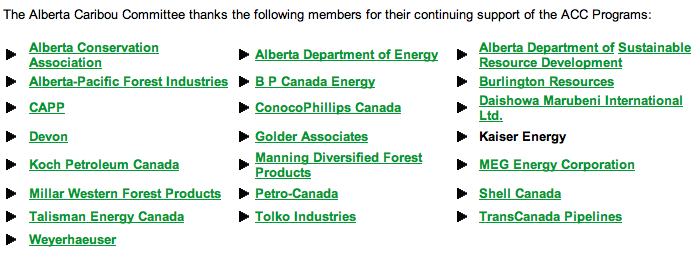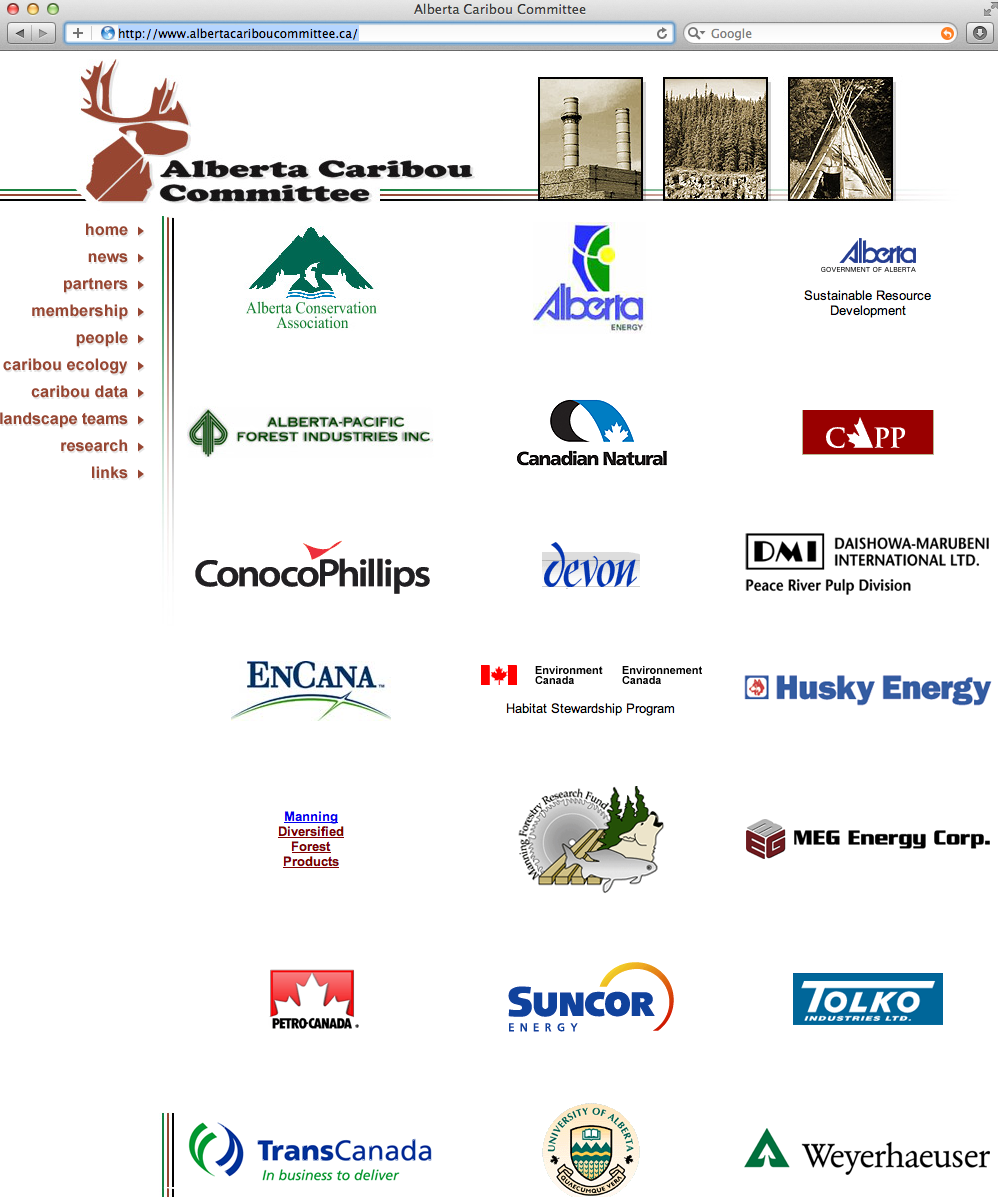There’s something really wrong about the Canadian government’s recent proposal to spend millions of dollars to scapegoat Alberta’s wild wolf population for the impact on caribou populations that is in fact due to industrial development wrecking wildlife habitat. (See our earlier coverage of this issue here.)
It’s not just the impractical costs of the proposal and it’s not just the needless killing of wolves. It’s the bold-faced dishonesty of this anti-science proposal in a time when industry and government are already facing a credibility crisis.
The government, on both the provincial and federal level, is using numerous talking points to demonstrate the “regrettable but necessary” character of the proposed wolf cull that will claim thousands of Alberta’s wolves in coming years.
These oil-friendly politicians falsely claim that the wolf is responsible for declining caribou populations; they falsely claim that the wolf cull is designed to recover caribou; and they falsely claim that the wolf cull is temporary.
But these strategic talking points are not coming from the province’s scientists, biologists or conservation specialists. These real experts are describing the government’s storyline as a bunch of public relations hogwash.
The truth is that caribou populations are plummeting due to rapid industrialization of their habitat, chiefly the timber, oil and gas industries profiting off the Alberta Tar Sands boom.
As DeSmogBlog recently reported, the official body responsible for caribou recovery in Alberta is the Alberta Caribou Committee – an organization dominated by timber, oil and gas industry interests.
Here is a look at the Alberta Caribou Committee’s members:
Also take a look at the Alberta Caribou Committee’s website list of sponsoring ‘partners’:
According to Cliff Wallis, one of the sole conservation voices sitting on the committee, the ACC seems mostly designed to protect industrial interests at the expense of caribou recovery.
“It has been 7 years of frustration and hell, just watching industry and the industry associations block everything you’re trying to do to protect caribou and caribou habitat. They’ve used every stalling tactic in the book. It just goes to the heart of where this industry is – it’s got a black heart, and not the green heart they try to portray,” Wallis told DeSmogBlog in an interview.
Wallis works for the Alberta Wilderness Association (AWA) and has watched the priority of preserving caribou in the province sideswiped in favor of increased industrial development.
He’s also been around long enough to see the conversation reworked by industry and government to turn wolves into the scapegoat.
Although wolf removal is now widely regarded as a ‘solution’ to the problem of caribou declines, it was never originally conceived as a ‘fix’ of any kind – and that’s because wolves are not the problem. Any mention of wolf predation was always understood to be a symptom of the real problem: unrestrticted industrial activity.
Prior to a buried 2005 report that recommended a temporary moratorium on oil and gas leases in threatened caribou areas, the government considered critical habitat protections as a legitimate and effective way of recovering declining caribou herds.
In fact, because the province’s scientists designated habitat encroachment as the leading cause of declining caribou numbers, habitat protection was considered the most obvious and necessary path to caribou recovery. There was no controversy whatsoever among scientists.
Yet according to AWA’s Carolyn Campbell, industry refused to cooperate, claiming caribou habitat protection threatened their right to exploit the province’s oil and gas resources – an argument the government quickly conceded.
Since then, government has made no attempt to develop a workable habitat protection plan and has, in fact, increased oil and gas leases in caribou range. Meanwhile industry groups like the Canadian Association of Petroleum Producers have fought hard against the legalization of protective measures.
Because both government and industry have refused to get serious about habitat protection, the emphasis has been placed on wolf control.
“The science tells us that really the root cause is habitat disturbance and we must prevent any further new habitat disturbance in those caribou ranges. We must also act promptly to restore disturbed habitat. This is not news – this is information that government and industry are deliberately ignoring,” Campbell told DeSmogBlog.
Caribou recovery has always been secondary to industry interests, says Campbell, and since habitat protection has been taken off the table, any talk of ‘caribou recovery’ is just a public relations strategy to keep criticism of the tar sands at a minimum.
“There have been decades of so-called best practices which really amount to deferring the timing of some activities. But that’s really, really ineffective because there’s been no cumulative effects management,” she said. “So it’s really a PR move – all those ‘industry best practices.’”
According to Campbell, the crux of the problem lies in Alberta’s overall management of the resources and its structural addiction to oil revenues:
“the provincial government is actually deeply conflicted to do anything that might slow down maximizing industry revenue today and is not really thinking about the consequences for our children,” according to Campbell.
“One way we see this is the caribou policy – there have been no attempts to stop bitumen leases or any other kind of other leases in caribou range. That should be the first and most pain-free step. If we could just stop selling leases to companies then we wouldn’t be creating a property right that they expect to exercise by exploring for and developing the energy,” she continued, “and the government has refused to do that.”
In the end, says Campbell, the burden of Alberta’s reckless industrial development has fallen on the province’s wild wolves.
“It’s a deeply unethical approach to oil sands development – to target a species through no fault of its own.”
As for Cliff Wallis and his continued role on the Alberta Caribou Committee, there seems to be little hope. “They haven’t met for months,” he said.
On behalf of the Alberta Wilderness Association he says, “we’ve maintained our opposition to the cull. If we could see habitat protection going along with it…but we’re still into habitat destruction.”
Wallis and others want to see the potential in the cull, if it is to be expanded. They want to make sense of the slaughter by resting assured it will actually mean something for the caribou recovery effort.
But at this point, there is little to indicate that possibility.
With no end to the tar sands expansion in sight, the caribou are headed for localized extinction in many areas of the province.
“Where does it end?” asked Wallis. “It ends in the total destruction of habitat; no caribou or other wildlife either.”
Watch DeSmogBlog’s video investigation: CRY WOLF: An Unethical Oil Story.
Image credit: Kris Krug
Subscribe to our newsletter
Stay up to date with DeSmog news and alerts








